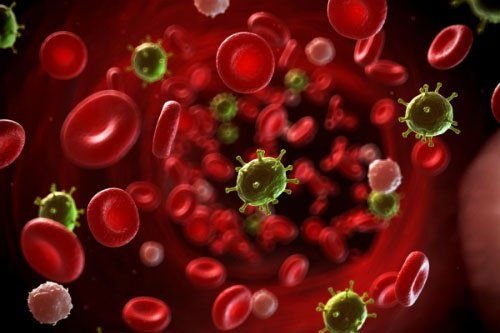Multi-Organ Failure

Understanding Multi-Organ Failure
Multi-organ failure, also known as Multiple Organ Dysfunction Syndrome (MODS), is a life-threatening condition where two or more organ systems fail simultaneously due to severe illness or injury. It often results from infections, trauma, or chronic health conditions that overwhelm the body’s ability to maintain vital functions. Without immediate and advanced medical intervention, multi-organ failure can lead to serious complications or death.
At Siddhivinayak Hospital, we provide state-of-the-art critical care for patients with multi-organ failure. Our expert team of intensivists, specialists, and nurses is equipped to deliver life-saving treatments, stabilize organ function, and promote recovery through a multidisciplinary approach.
Common Causes of Multi-Organ Failure
- Sepsis and Septic Shock: Severe infections leading to widespread inflammation and organ dysfunction.
- Severe Trauma or Burns: Injuries that overwhelm the body and compromise multiple organ systems.
- Acute Respiratory Distress Syndrome (ARDS): Critical respiratory failure affecting oxygen delivery to organs.
- Cardiac Arrest: Loss of blood flow during cardiac arrest can lead to organ ischemia and failure.
- Chronic Conditions: Advanced stages of diseases like diabetes, chronic kidney disease, or heart failure.
- Drug Overdose or Poisoning: Substances that cause toxic effects on multiple organs.
- Post-Surgical Complications: Rare but severe complications following major surgeries.
- Pancreatitis or Liver Failure: Organ-specific diseases progressing to systemic dysfunction.
Symptoms of Multi-Organ Failure
Recognizing the symptoms early is critical for timely intervention:
- Severe difficulty breathing or reliance on mechanical ventilation
- Low blood pressure and poor circulation
- Reduced urine output or no urine production
- Confusion, disorientation, or unconsciousness
- Jaundice or other signs of liver dysfunction
- Irregular heartbeat or cardiac instability
- Increased susceptibility to infections
Our Approach to Treating Multi-Organ Failure
At Siddhivinayak Hospital, our multidisciplinary approach combines expert care, advanced technology, and compassionate support to manage and treat multi-organ failure. Our focus is on stabilizing the patient, supporting failing organs, and addressing the root cause to promote recovery.
1. Rapid Stabilization in the ICU
- Advanced Life Support: Immediate interventions, including intubation and ventilator support for respiratory failure.
- Intravenous Fluids and Medications: To stabilize blood pressure and support circulation.
- Continuous Monitoring: Advanced monitoring of vital signs, organ function, and overall health.
2. Comprehensive Diagnostic Assessments
To identify the underlying cause and the extent of organ failure, we use:
- Blood tests to assess kidney, liver, and cardiac function.
- Imaging studies like X-rays, CT scans, or ultrasounds for organ evaluation.
- Cultures and lab tests to detect infections or toxins.
- Echocardiography and other cardiac assessments for heart function.
3. Specialized Organ Support
Patients with multi-organ failure often require life-supporting measures for one or more organ systems:
- Mechanical Ventilation: To ensure adequate oxygenation and support lung function.
- Renal Replacement Therapy (Dialysis): For patients with acute kidney failure.
- Liver Support Therapy: Advanced treatments for liver dysfunction, including plasma exchange.
- Cardiac Monitoring and Medications: To manage arrhythmias or improve heart function.
- Nutritional Support: Customized nutrition plans, often delivered intravenously, to meet the body’s needs.
4. Targeted Treatment of Underlying Causes
- Antibiotics and Antivirals: For sepsis, infections, or systemic inflammation.
- Surgical Interventions: To address trauma, abscesses, or other complications.
- Toxin Removal: For drug overdose or poisoning, including activated charcoal or plasmapheresis.
5. Multidisciplinary Team Collaboration
Our team brings together specialists from various fields, including pulmonology, cardiology, nephrology, hepatology, and infectious diseases, ensuring comprehensive and coordinated care.
6. Post-Critical Care Rehabilitation
Once the acute phase is managed, we focus on rehabilitation and recovery:
- Physical Therapy: To restore strength and mobility after prolonged immobilization.
- Occupational Therapy: Helping patients regain independence in daily activities.
- Psychological Support: Addressing mental health challenges, including post-intensive care syndrome (PICS).
- Regular Follow-Ups: Monitoring progress and preventing recurrence of complications.
Why Choose Siddhivinayak Hospital for Multi-Organ Failure Treatment?
- Expert Critical Care Team: Our intensivists and critical care specialists have extensive experience managing complex multi-organ failure cases.
- Advanced ICU Facilities: Equipped with state-of-the-art ventilators, dialysis machines, and continuous monitoring systems for life-saving care.
- 24/7 Emergency Care: Immediate access to critical care services for rapid stabilization and treatment.
- Multidisciplinary Expertise: Collaboration between multiple specialists ensures holistic care tailored to each patient’s condition.
- Compassionate Support: We prioritize both the patient’s and family’s well-being, offering transparent communication and emotional support throughout treatment.
Long-Term Recovery and Preventive Care
Recovery from multi-organ failure can be a gradual process. At Siddhivinayak Hospital, we provide long-term care to help patients regain their health and prevent future complications:
- Rehabilitation Programs: Tailored physical and occupational therapy to rebuild strength and function.
- Nutritional Counseling: Support for a balanced diet to aid recovery and organ health.
- Lifestyle Guidance: Preventive advice to manage chronic conditions and reduce risk factors.
- Regular Health Check-Ups: Monitoring organ function and overall health.
Preventing Multi-Organ Failure
While some causes of multi-organ failure are unpredictable, taking proactive steps can reduce the risk:
- Seek early treatment for infections and chronic conditions.
- Manage lifestyle-related diseases like diabetes and hypertension.
- Avoid exposure to harmful substances or toxins.
- Maintain regular health check-ups to detect potential issues early.
Trust Siddhivinayak Hospital for Advanced Critical Care
Multi-organ failure is a complex and life-threatening condition, but with timely and expert care, recovery is possible. At Siddhivinayak Hospital, we are committed to delivering life-saving treatments and compassionate care to help patients and their families through this challenging time.

